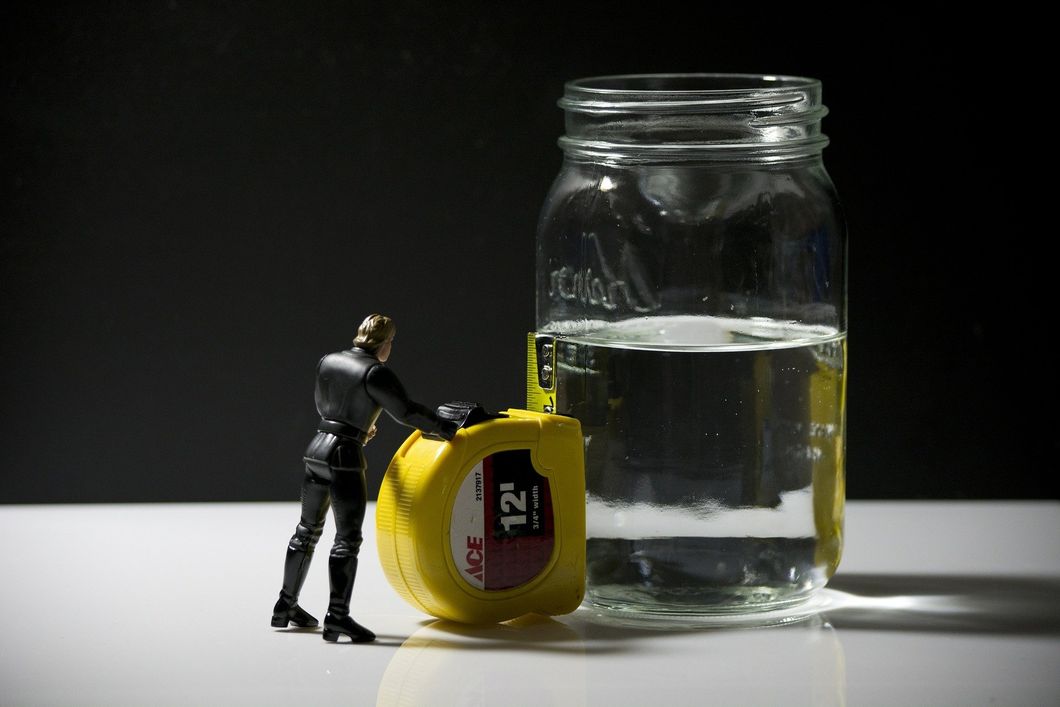Growing up, I like many others was always told to look on the bright side of life- to see the glass half full, and the greener grass on my side of the fence. And like most people I didn't have any reason to doubt this philosophy. After all, as we were often told in our childhoods, you don't want to end up a pessimist, for they are thoroughly miserable and depressed individuals, and are certainly no fun to be around. Hope is what gives us the strength to go forward, a resource that pessimists find scarce if present at all.
I subscribed to this mindset for many years, considering myself a staunch optimist and a romantic as well, always believing and hoping for the best. This proved a perfectly acceptable way to carry myself- at least, through my younger years. The shine began to slowly come off the proverbial apple in late middle school, and by the time I had hit my college career the dissonance between what I saw and what I believed was simply too great. Surely, things were supposed to be better than this. Eternal wars, utterly corrupt corporations with politicians in their pocket, an oncoming existential threat in Climate Change- it was difficult for me to ever say that the base state of the world could ever be "good", or even that it ever was in the first place.
And so last year I chose to abandon my optimism and my romanticism, both of which proved to be fruitless for me. This isn't to say they're completely invalid, but I do want to address some common criticisms. Many claim that things are better now than they have ever been. Death rates are down, healthcare is more accessible, and relatively speaking everyone is wealthier. This is a viewpoint ignorant of history, however, and also ignorant of the current mental status of our nation and others. All around the world, depression and anxiety rates have doubled, tripled, and totally exploded in the last few years. Suicide is now the number two leading cause of death in individuals between the age of 10 to 34 in the United States. And, most important to note- history is not an eternal upward climb. As we have clearly seen in the last few weeks, society has often been forced to take steps back on the civilizational staircase- sometime permanently. In the case of the climate crisis, this seems to be an inevitability.
To be a pessimist is to, rather than pretend these issues will be solved quickly or easily, embrace the reality that life is filled with suffering, unplanned diversions, worldwide crises and pandemics. Rarely if ever will plans go exactly right, lovers be a perfect match, or a life be devoid of great tragedy and suffering. Life, at its base form is messy and unpleasant. A pessimist assumes the worst and plans accordingly, rather than waiting to be taken by surprise by life's inevitably painful curve balls. I've already made peace with many of the worst things that come to pass. And with that peace comes freedom. At least, relatively speaking.
Perhaps if our society as a whole was a bit more pessimistic, we could avoid some of the problems we're currently enduring. Protests across the country have been alight over the stay at home orders, demanding we re-open the country. Doesn't it seem a little optimistic of them? They assume- and hope- that we are already free of this COVID-19 curse. But as any pessimist will tell you, this crisis is FAR from over. The second spike is practically a given at this point, especially with states opening so early.
So, perhaps next time you find yourself trapped by the realities of our chaotic age- consider pessimism. It's a matter of preparedness- not sadness.


















